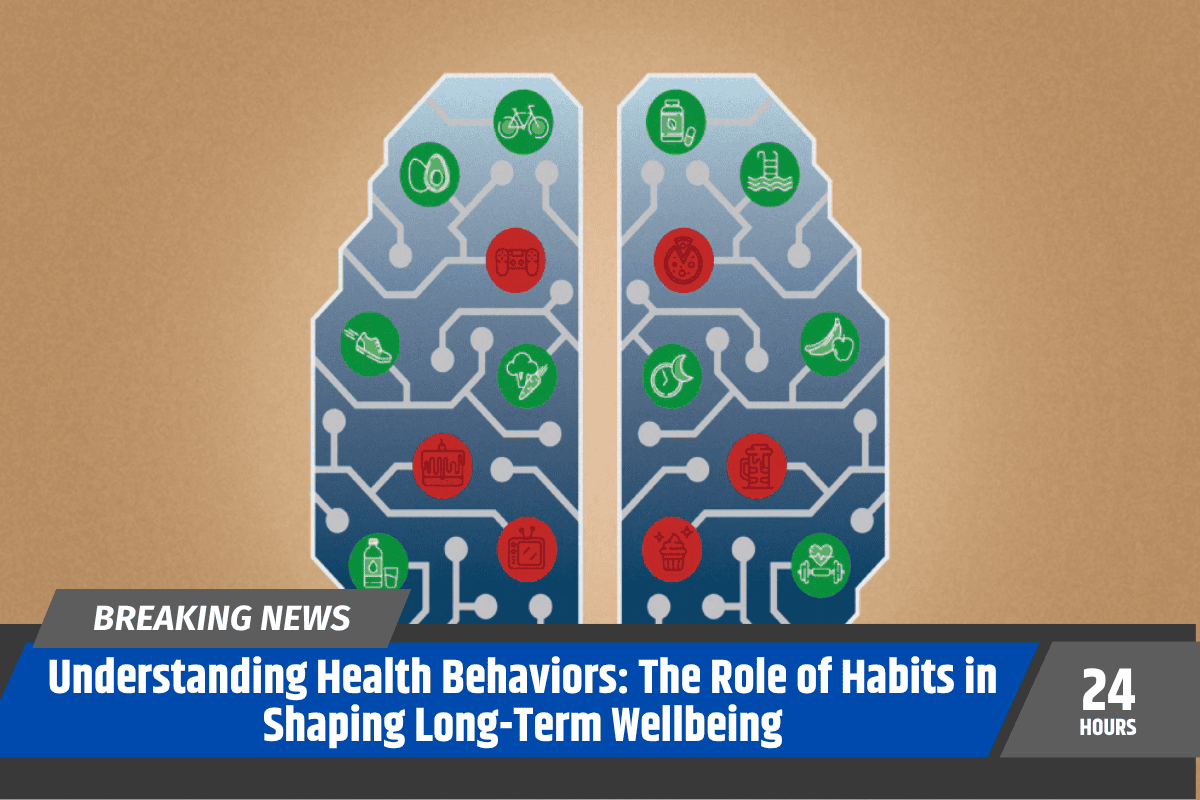Health behaviors are the actions we take every day that impact our physical, mental, and emotional wellbeing. These behaviors can be positive or negative and are often influenced by habits formed over time.
Habits play a major role in shaping our long-term health, affecting everything from our energy levels to our risk of chronic diseases. In this article, we’ll explore how habits influence health behaviors and the role they play in achieving and maintaining long-term wellbeing.
What Are Health Behaviors?
Health behaviors are choices we make related to our health, such as the foods we eat, how much we exercise, how we manage stress, and the sleep habits we maintain. These behaviors can have either positive or negative effects on our overall health.
For example, eating a balanced diet, staying physically active, and avoiding harmful substances like smoking are health behaviors that promote good health. On the other hand, poor diet choices, lack of exercise, and unhealthy habits can contribute to various health issues.
How Habits Influence Our Health
Habits are the routines and actions that we do automatically without thinking much about them. They are formed when we repeat certain behaviors over time, and eventually, they become part of our daily lives.
Habits are powerful because they shape our long-term behaviors and, as a result, have a lasting impact on our health.
For example, if someone makes a habit of walking every day, they will likely improve their cardiovascular health, maintain a healthy weight, and feel more energetic over time.
Similarly, if a person has a habit of eating unhealthy snacks or staying up late, these habits can negatively affect their health, leading to weight gain, poor sleep, and an increased risk of chronic diseases like diabetes and heart disease.
The Link Between Habits and Wellbeing
The connection between habits and wellbeing is undeniable. Our physical and mental health are closely linked to the habits we practice.
Good habits can boost energy levels, improve mood, and help maintain a healthy weight, while bad habits can lead to fatigue, poor mental health, and an increased risk of disease.
For instance, regular exercise is a habit that can help with stress management, improve sleep quality, and support weight management.
On the other hand, habits like smoking or excessive drinking can have serious negative consequences, including lung disease, liver problems, and a weakened immune system.
The Power of Consistency
One of the key factors that determine whether a habit is beneficial or harmful to health is consistency. When good habits are practiced consistently over time, they accumulate and lead to significant improvements in health.
For example, if a person consistently eats nutritious meals and exercises regularly, they will be more likely to maintain a healthy weight, prevent diseases, and feel good overall.
In contrast, even a small unhealthy habit, when repeated over time, can have a major negative effect. For example, skipping sleep for just a few days can affect mood and energy, while a few days of overeating or consuming junk food can lead to weight gain and a lack of energy.
Making Positive Health Habits Stick
It’s easy to develop unhealthy habits, but forming positive ones requires effort and intention. However, it’s possible to replace negative behaviors with healthy habits if you approach it strategically. Here are a few tips to help make good health habits stick:
- Start small: Trying to make big changes all at once can be overwhelming. Begin with small, manageable steps that you can gradually build on.
- Set clear goals: Establish specific, realistic goals to track your progress and stay motivated.
- Be patient: Habits don’t form overnight. Stay consistent and give yourself time to adjust.
- Create a routine: Habits are easier to build when they are part of your daily routine. Try to incorporate healthy behaviors into your everyday life.
- Find support: Having a support system can make it easier to stay on track with your health goals. This could be a friend, family member, or a fitness group.
The Impact of Small Changes on Long-Term Wellbeing
The good news is that even small changes can lead to big improvements over time. If you start by making one positive change—like eating more vegetables or taking a walk each day—you’ll eventually start seeing improvements in your health.
Over time, these small changes can build on each other, creating a snowball effect that leads to long-term health benefits.
For example, if you consistently choose to take the stairs instead of the elevator or add more fruits and vegetables to your meals, these habits can add up to noticeable improvements in your fitness level, energy, and overall wellbeing.
Understanding the role of habits in health behaviors is essential for making lasting changes to our physical and mental wellbeing.
By cultivating healthy habits and staying consistent with them, we can greatly improve our long-term health outcomes. The key is to start small, set achievable goals, and be patient with ourselves as we work towards healthier habits.
Remember, every small step you take toward better health will help you create lasting change, leading to a happier, healthier life.





